expeditions ARE A SUPPORT TO poverty solutions.

choice PHILOSOPHY FOR expeditions
CHOICE Humanitarian is an international development organization whose purpose is to reduce the many dimensions of poverty in rural communities. We are not a travel company, and this is not poverty tourism. With over 30 years working in international development, we have learned that for humanitarian expeditions to be sustainable, they must be part of a larger, locally driven program that exists long before expeditions arrive, and the programs must have commitments from every community that lasts long after the expeditions leave.
At CHOICE, expeditions do not drive our development work—rather, we allow expeditions to be a part of the poverty solutions fueling and accelerating the community building and development work that is already taking place year round. Of the nearly 1,000 communities that CHOICE supports, very few (around 30 or so every year) will receive an expedition. The following principles help guide our approach:
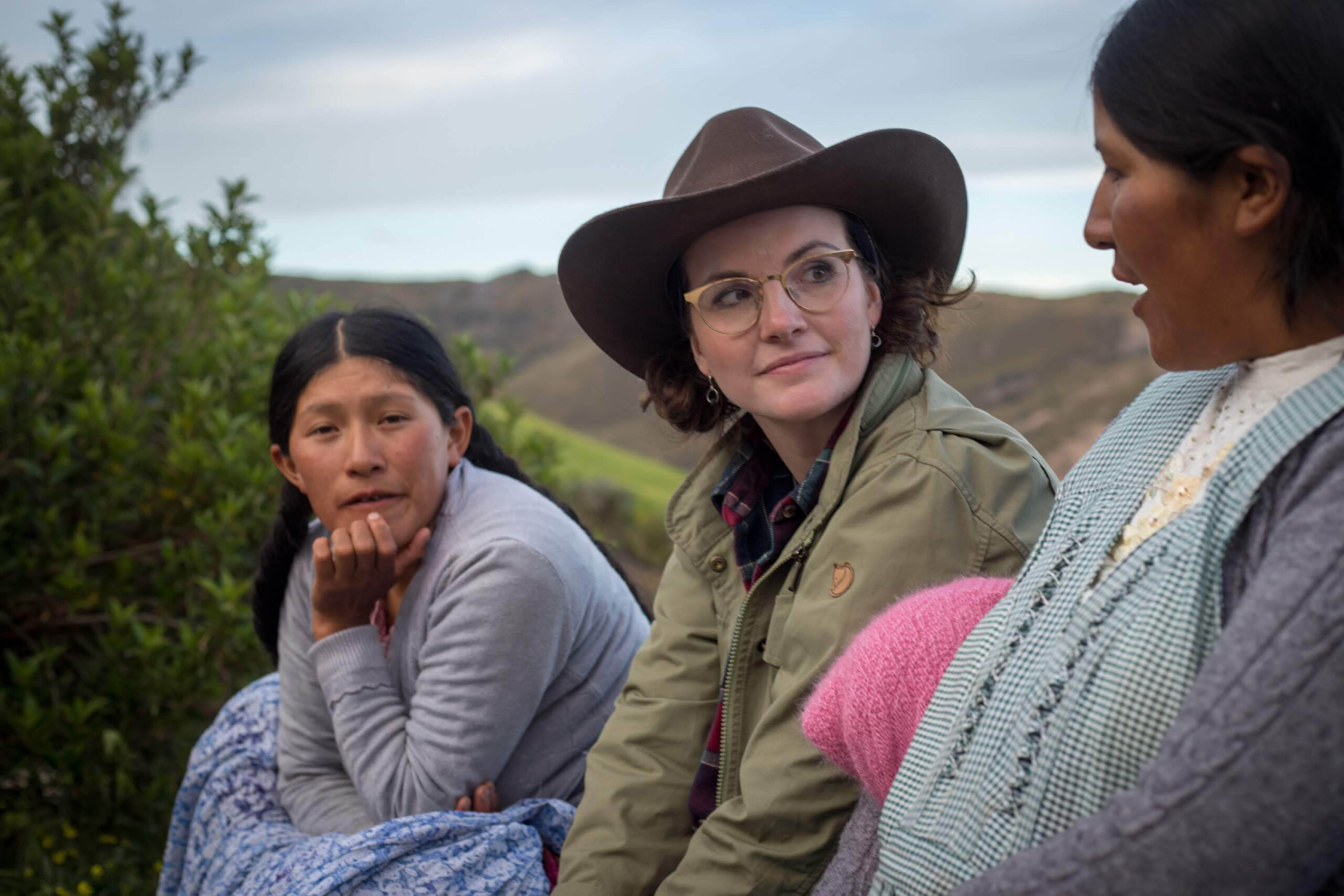
CULTURAL EXCHANGE
Cultural exchange is one of the most important aspects of CHOICE expeditions. When people of different backgrounds come together to exchange ideas, experiences, perspectives, and knowledge, the world becomes a more connected place. These authentic and meaningful interactions can generate empathy and foster open-mindedness.
CHOICE’s goal is that each expeditioner and each community member can expand their view of what it means to be a global citizen.
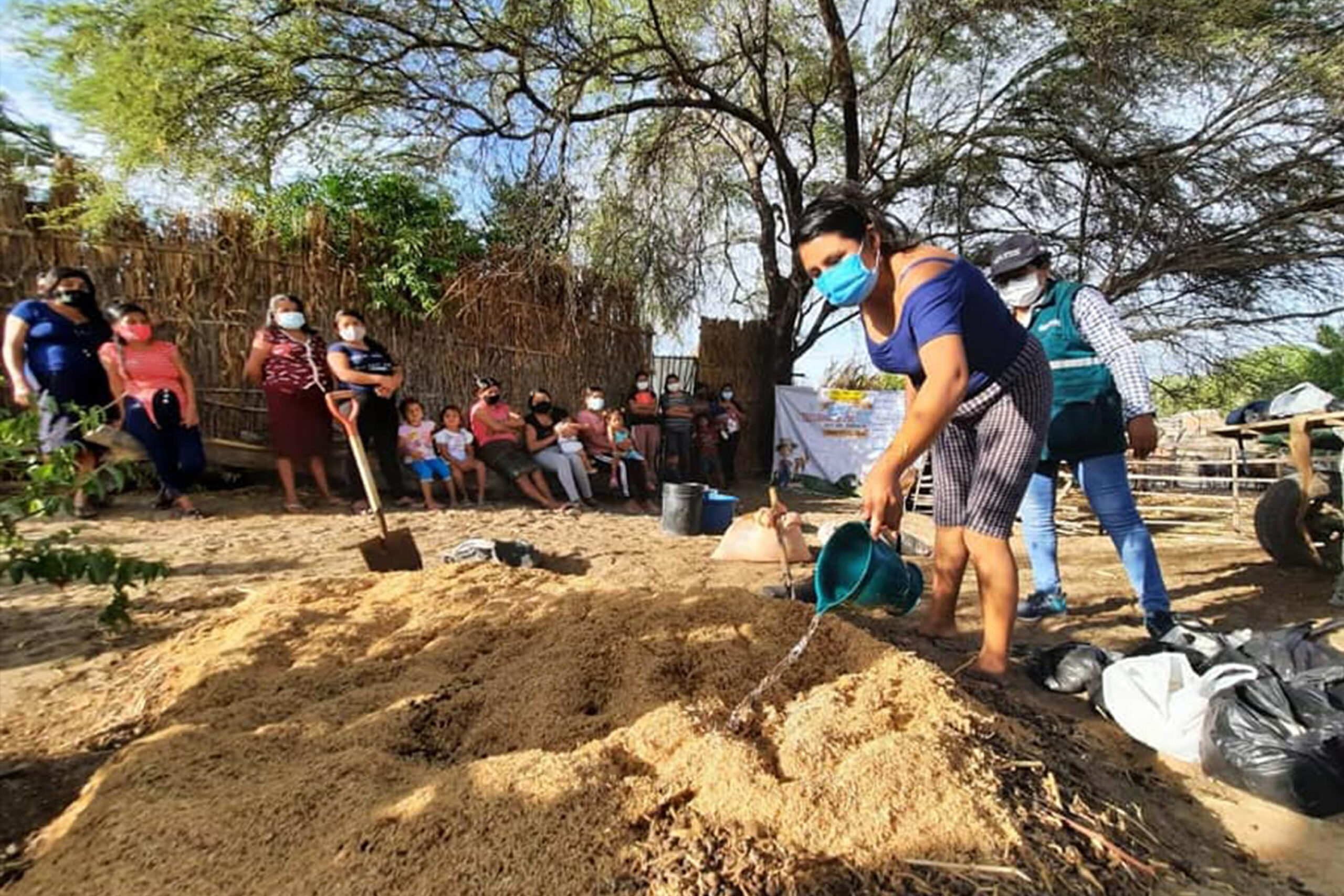
ETHICAL DEVELOPMENT
Sometimes, well-intentioned travelers participate in humanitarian service trips offered by organizations without understanding the true needs of the communities they serve. This can end up doing more harm than good.
CHOICE employs qualified local country staff who work with community members to organize and lead projects designed specifically for the needs of their community. These community-managed projects go on whether or not an expedition comes to the village, and they do so under CHOICE's implementation of theory of change.
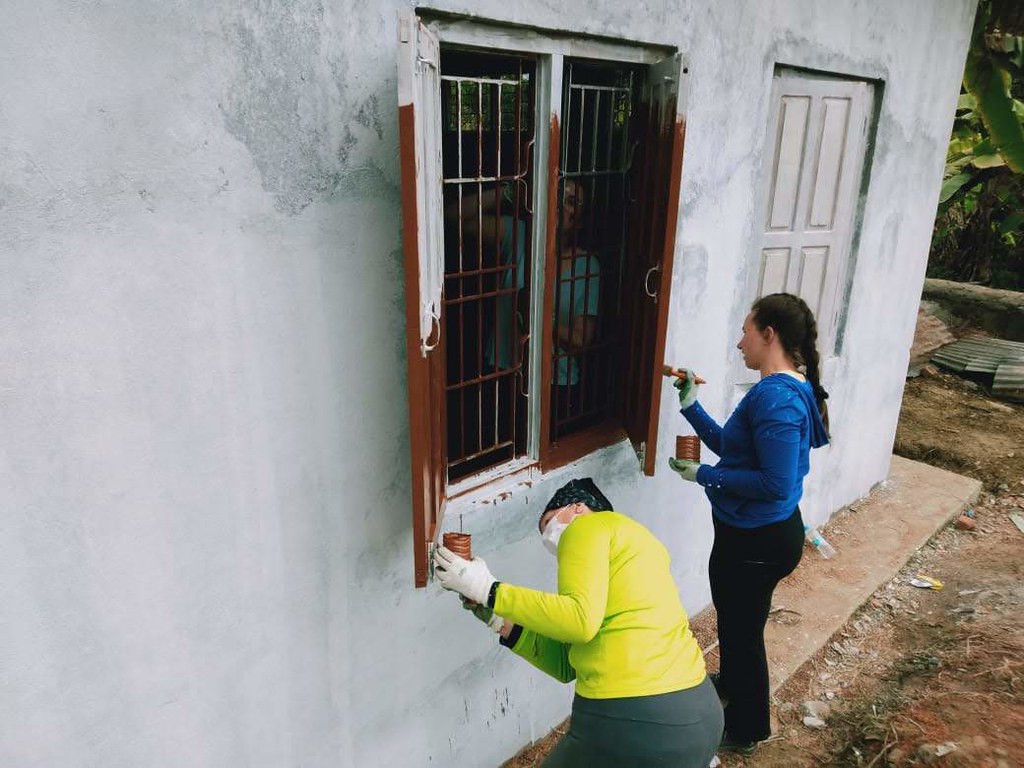
Sustainable Projects
Before entering any area, CHOICE’s country team executes a needs assessment in order to understand the community according to the multidimensional poverty index (MPI). The MPI considers health, standard of living, and education, along with specific subfactors for each category. Once CHOICE has an in-depth understanding of the systemic and deep-rooted causes of poverty in that area, we begin planning a project.
By focusing on the causes rather than the symptoms, our projects can create multidimensional, long-lasting solutions which increase the community’s capacity to build a path out of rural poverty.
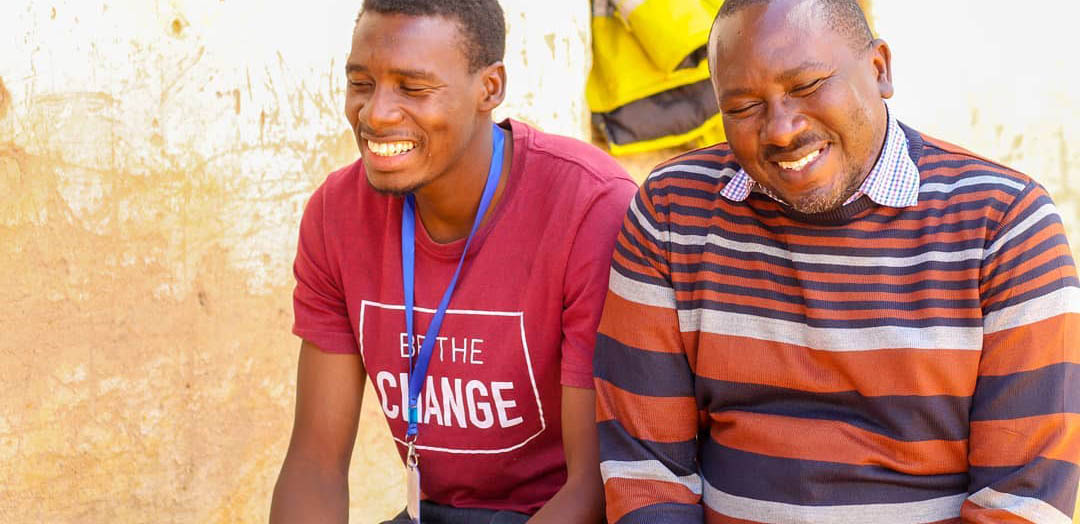
Direction from Local Teams
Under our community-led approach, our country teams build leadership capacity across hundreds of communities at a time, training and organizing communities to identify their priorities, design sustainable and appropriate solutions, and execute projects that are community-owned and managed.
As locals to their respective countries, our country teams are able to understand and address their country’s needs as they listen to community leaders. The country teams, along with Certified Expedition Leaders (CEL), help to ensure the authenticity and appropriateness of each CHOICE expedition.
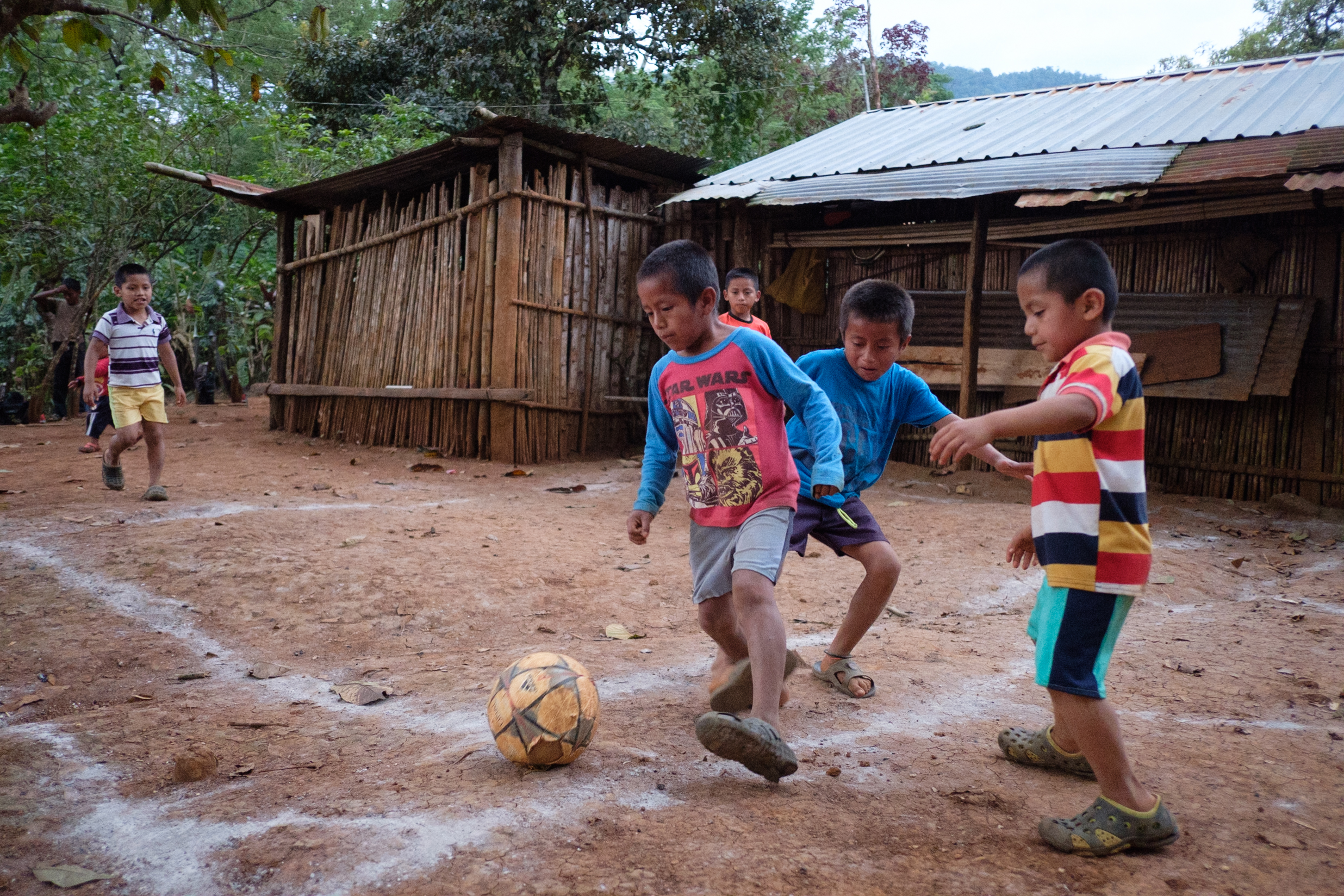
Expeditions are Not Voluntourism
“Voluntourism” often refers to individuals who do humanitarian work to boost their own image. CHOICE expeditions are not photos ops. These are life-changing experiences of education, inspiration, impact, and connection.
For example, before an expedition, Certified Expedition Leaders (CEL) educate participants on how to be culturally competent. This requires an awareness of different norms and perspectives, an attitude of open-mindedness toward other ways of living, and an appreciation for connection and communication even when languages aren't shared.
The protagonists of every CHOICE story are the community members who work hard to overcome their lack of opportunities and expand their range of options.
FAQs
Congratulations! We are so excited that you are interested in joining us for a life-changing experience!
Choose an expedition that you are interested in and apply for it here.
Expeditions are a rare opportunity for solo travelers, families, friends, and entire organizations to step out of their comfort zone and support one of our community-managed projects volunteering abroad.
Expeditions are a way for individuals, companies, and families to support these projects that are already happening in the community. There are community-run projects managed by community leaders with training and support from our local country teams.
Trips are equal parts adventure, education, and humanitarian service. Our approach to expeditions is to make sure the humanitarian projects that we work on are sustainable. These community-managed projects would go on whether or not an expedition comes to the village, but expeditions are a way for people to show support to the village.
Expeditions are not all about project work but are also a way for people to experience an inter-cultural exchange with community members. We place in equal importance project work and interaction with the community through community celebrations, day-in-the-life activities understanding community village life, and ample opportunities to talk and play games with community families and leaders.
CHOICE Humanitarian holds expeditions in 7 different countries and areas around the world. See where we work.
Your investment in an expedition is maximized to make a difference—it does good for both you and the community.
Around 50% goes towards the costs of running the trip. The remaining 50% goes towards CHOICE’s mission, its operations, and executing projects that address poverty like the one that you’ll be working on.
The costs of running the trip include: two nights’ hotel accommodations on the front and back end of the stay in the village, land transportation, village lodging, meals, security, and Certified Trip Leaders.
Expedition fees cost $2,395 per person. This does not include your airfare to/from the country.
Expedition fees will not cover any additional accommodation needs if arriving before or after the expedition.
Deposit: A $300 deposit is required with your application to reserve your spot. The deposited money (via credit card, check, or other) will be held until your application has been reviewed. If approved, your deposit will immediately be processed, at which point it is nonrefundable and will count as an initial payment toward the full expedition costs.
There may be circumstances in which an expedition needs to be postponed, canceled, or suspended. These include but are not limited to: (1) having a minimum of 12 registered participants in order for an expedition to be held; (2) changing health circumstances and travel guidelines; (3) other safety considerations relevant to international travel.
If this becomes necessary, CHOICE will communicate with each registered participant about possible options, which could include credit towards a future expedition.
Please read our FAQs, and the cancellation policy in our Terms & Conditions found here and on the application pages (links in trip descriptions on the expeditions webpage) for more details.
The Expeditions Terms and Conditions can be read here.
Each village we work with plans specific projects according to their unique needs and priorities. Depending on their needs at the time of the expedition, volunteers could be working on a wide range of community-managed projects that span from the construction of classrooms, stoves, or hospitals to trenching water systems and constructing school desks. We normally know the project details three to six months before the start of an expedition.
However, in some cases, we may not know the specifics of a project any sooner than four weeks prior to the expedition. Last-minute changes to project details can occur when the community re-allocates resources and priorities.
Projects vary by country as well where there are different technologies, resources, and needs. Below are a variety of past projects according to country that different expeditions have worked on-
- Bolivia: Community water systems, schoolhouse construction, pit latrine construction
- Guatemala: Schoolhouse construction, community water systems, health post construction
- Kenya: Pit latrine construction, desk and schoolhouse construction
- Mexico: Schoolhouse construction, water cisterns, latrines, family gardens
- Nepal: Community water systems, schoolhouse construction, bio-gas digester construction
- Peru: Family and community gardens, stove construction, women’s health initiative
- Ecuador: School construction, reforestation, leadership training
The expedition may come in on any phase of the project. The village determines the project and provides labor and materials, meaning that the project could have been going on for several years or just beginning. CHOICE's sustainable and community-led development approach means that projects will be completed regardless of expedition participation.
We have learned that in order for humanitarian expeditions to be sustainable, they MUST be part of a larger, locally driven program that exists long before expeditions arrive, and the programs must have commitments from every community that lasts long after the expeditions leave. Expeditions provide a unique opportunity for volunteers and village community members to work side by side and learn from one another while accelerating and/or completing a phase of construction for a specific project.
See upcoming expeditions here.
We encourage everyone to fundraise for their expedition.
If you're interested in running a personal fundraiser, we have tools and platforms that can help make that easier. Contact us at expeditions@choicehumanitarian.org for resources, or get started on your own on the peer-to-peer fundraising page.
CHOICE Humanitarian takes all necessary precautions to ensure your safety, within practical limits. But, ultimately, safety is up to the individual’s use of common sense. From the moment you land in-country to the moment you depart, you will be accompanied by CHOICE country staff and Certified Expedition Leaders through all transportation, hotel, and travel logistics.
With them, you will be traveling in private transportation through trusted agencies. When in urban and suburban areas, we stay at safe, clean, trusted hotels that have been pre-approved by CHOICE staff. When in rural areas, it's more typical to stay in tents or in rural community centers. It is typically very safe in the village and there is little to no crime. We do not hold expeditions in any areas or villages where there has been a history of crime. Your belongings will be in closed-off sleeping areas. You are advised to not leave personal belongings (such as cameras and sunglasses) lying around outside this area.
Prior to and/or after the expedition, participants are on their own and we encourage taking necessary precautions to ensure personal safety.
While there is no set minimum age requirement, we encourage families to exercise some caution when bringing very small children. In most circumstances, children over the age of 8 are a good fit for expeditions, with one or both parents/guardians accompanying them. In some cases, younger children can join; if for example, they were the youngest of 3 children and the whole family was going on the trip.
We will be in very rural and rudimentary lodgings and areas at times, and we want to make sure that everyone is aware and prepared for that. Some good questions to ask are whether the child-
- is a picky eater?
- is flexible with sleeping in new locations, using latrines, etc?
- can handle extended travel under rough conditions?
- likes to camp?
- is mature enough to be in an environment of rural poverty?
- can appreciate and respect different cultures?
- has traveled internationally?
This is a case-by-case situation, and we trust parents to make the best decision. Please reach out to our Expeditions Team with specific concerns about this.
If a child under the age of 18 wishes to attend an expedition without a legal parent of guardian, a Parental Release document will need to be signed and notarized by the child’s legal guardian(s). Parents will also need to authorize an adult member of the expedition to be their child’s legal guardian (this will usually be the expedition leader).
Talk to your tax advisor about tax deductibility for this unique experience. Tax-deductible funds, such as Donor Advised Funds (DAFs), can potentially be used for expedition fees.
About 50% of expedition contributions go to CHOICE’s mission to help execute projects that address poverty, just like the ones your expedition group will work on, making your investment directly tied to philanthropy and social impact.
This requirement varies by country.
In Guatemala, Peru, Ecuador, and Mexico a visa is not required for stays under 30 days.
In Bolivia, Kenya, and Nepal, a travel visa can be purchased in the airport upon arrival. Depending on the country, a visa can be also purchased ahead, if desired. See your country embassy website for instructions: KENYA, NEPAL, BOLIVIA.
COVID travel restrictions are constantly changing. We are staying up-to-date with these and will adjust expeditions accordingly.
CHOICE recommends that all volunteers be up-to-date with routine vaccinations (MMR, DPT, Hepatitis A, Hepatitis B, Typhoid).
Please read our COVID-19 update for our statement on COVID vaccines.
We suggest that each volunteer consult with their health care provider or an international travel clinic for professional medical advice regarding recommended travel vaccines and immunizations. Please allow plenty of time between entering a country and getting your immunizations. We recommend scheduling an appointment at least 6 to 8 weeks prior to departure.
You can check out the Center for Disease Control website for any further questions in respect to immunizations. Choose your country from the drop down list, then press “Go” to read more.
CHOICE expeditions take place in rural locations across the globe where medical services are often unavailable. Therefore, CHOICE requires all expedition participants to purchase medical evacuation insurance that will provide coverage while traveling overseas. CHOICE requires at least $25,000 in medical evacuation insurance to cover proper transportation to a hospital or clinic during medical emergencies. You must provide proof of this coverage to CHOICE as part of your registration. This cost is in addition to the expedition fee.
In addition, CHOICE encourages all expedition participants to purchase standard travel insurance and trip cancellation coverage due to unforeseen circumstances that might cause trip disruptions or unexpected flight cancellations.
Several companies provide the above insurance policies.
CHOICE provides a few suggestions:
Travel Guard
(800) 826-1300
www.travelguard.com
Gateway Connexions
(800) 282-4495
http://www.gatewayplans.com/
Travelex
(800) 228-9792
https://www.travelexinsurance.com/
Insure My Trip
(800) 487-4722
https://www.insuremytrip.com/
Major credit card companies also provide free and/or low cost travel insurance to cardholders. Please be sure that such coverage is actual insurance and not just insurance consultation.
If you are a student or faculty member, the least expensive way to acquire emergency evacuation/medical insurance is the international youth/student/faculty I.D. card ($20). Most universities offer these through their study abroad office. You will need to provide proof of current school enrollment or faculty employment and a passport-sized photo.
There is also an International Student Card that is a $25 plan and covers our medical evacuation requirement. See if you qualify and more information on their website below.
We recommend that you are comfortable traveling to remote, rugged areas, sleeping on an air mattress or cot and using latrines. However, for the purpose of the project, physical capacities are not a major concern. We find responsibilities for each member of the expedition from the youngest to the oldest.
The most important objective of the trip is not the just project, but the connection created between people. For every participant, there will be a variety of activities available depending on interests and physical abilities. All projects will include options of intense manual labor, such as digging latrines or building schoolhouse walls; less intense manual labor, such as hauling bricks or mixing cement; and non-strenuous activities such as teaching English, playing games, passing out water, or interviewing village community members.
There are two options:
- You can arrange your own flights and we can provide you with other group members’ itineraries so that you can try to match theirs.
- CHOICE can refer you to several travel agents who arrange CHOICE staff travel. One of those is Blair Greene through CV Travel. Her contact information is below.
Blair Greene
1(205)-484-2029
blair@cvtravel.com
Please note, airfare costs are different for every country and vary depending on time of year. We encourage each participant to purchase airfare with anticipation to the expedition as flight costs are normally lower when purchased with anticipation to departure date.
Depending on availability and country, CHOICE offers some optional tours. These are optional and are not a set part of CHOICE expeditions. In some cases, the expedition leader may opt to plan and lead additional touring. Check with the Expeditions Coordinator to see if this is being planned for your expedition. In all other cases, CHOICE can offer suggestions of places to tour and agencies to use.
Please note, the costs of in-country touring are NOT included in expedition costs.
Optional tours offered by CHOICE depending on availability:
- Bolivia: Machu Picchu in Peru, usually before the expedition (helps you acclimatize). You can also visit Cochabamba and the Salt Flats.
- Guatemala: Expedition usually spends its last night in Antigua, a beautiful historic city. Further travel can then be arranged to hike Volcano Pacaya, visit Lake Atitlan or Tikal.
- Kenya: Safari. May be before or after the expedition—depends on the trip. Other options include visiting Lamu, a historic Muslim city, hiking Mt. Kilimanjaro, or fishing at Lake Victoria.
- Mexico: Guanajuato, an old Spanish Colonial silver mining town, usually after the expedition. Mexico City tour of the historic old town.
- Nepal: Trekking in the Himalayas, usually after the expedition. Tours in Pokhara. Tours can also be arranged for the National Royal Forest Wildlife Refuge in Chitwan (elephant rides), white water rafting, mountain biking, and flights to Mt. Everest.
- Peru: Machu Picchu Tour and tour of Sacred Valley in Cusco is offered usually before the start of the expedition.
- Ecuador: Galapagos Tour, Eco-tourism Tour in Banos, Quito Full-day Tour, Cotopaxi Full-day Tour
We plan and host both public and private trips for any groups, families, organizations, or businesses who would like to plan their own private expeditions. Keep in mind the minimum number of participants for a private expedition is 15 participants.
With private expeditions, the itinerary can be much more flexible with planned activities specific to the needs and interests of the group. Please reach out to our Expeditions Team if you would like to know more about planning a private expedition.
You will be required to fill out an application and provide relevant documents for any expedition. Links to applications are available on the expeditions webpage.
Medical evacuation insurance covering at least $25,000 is required for each participant.
A passport is required for entry to all countries where CHOICE expeditions venture. Passports must be valid for at least 6 months after the expedition return date.
